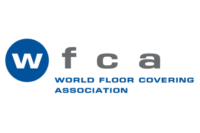ASID and IDC Join Forces for Impact Summit 2015

The American Society of Interior Designers (ASID) and the Interior Designers of Canada (IDC) will bring together thought leaders from business, government and non-profit sectors for the inaugural Impact Summit at the Lake Nona Medical City in Orlando, Fla., Aug. 6 to 7.
“The genesis of creating an Impact Summit stems from the Health and Wellness Protocols we’ve been developing over the last year as part of our 2014 Commitment to Action at the Clinton Global Initiative,” said Randy Fiser, ASID's CEO. “As part of this process, we know it’s critical that we continue to drive the health and wellness conversation to not only our membership, but also to decision makers, thought leaders and government officials who can impact change. By co-hosting the Summit with IDC, we hope to inspire more people across North America to join the conversation and build healthy solutions meant to impact our collective future.”
The summit will open with a tour of the Lake Nona Medical City. The 650-acre health and life sciences park is a landmark for Orlando and a location for medical care, research and education.
The opening keynote will be given by Alexander Chan, associate director of national strategy for the Clinton Health Matters Initiative (CHMI), who oversees a national portfolio of programs focused on chronic disease prevention and treatment. Chan manages initiatives that address critical needs or gaps in services across a broad array of domestic health issues, such as increasing the capacity of mental health and substance abuse services on college campuses, expanding access to life-saving opioid reversal agents through negotiated agreements with pharmaceutical manufacturers, and more. Prior to joining the foundation, Chan worked in both the public and private sectors on projects designed to improve public health outcomes through interventions and changes to the built environment.
“Working with ASID, we’ve been able to collaborate and bring together a diverse group of thought leaders and experts from across various disciplines to share their insight on how the power of smart technology can influence the future of health and wellness through interior design,” said Susan Wiggins, IDC's CEO. “Can indoor environmental quality programs build value into building assets to retain and attract tenants and employees? Is integrative design the key to health and wellness success? These are some of the questions we want to answer.”
In addition, the summit will feature three plenaries, each with a panel of speakers who will drive discussions on designing built environments that promote positive health outcomes. Speakers represent a wide-variety of disciplines and bring their unique perspectives to each topic area.
For more information, visit asid.org.
Looking for a reprint of this article?
From high-res PDFs to custom plaques, order your copy today!






